We do! Australians vote Yes to same-sex marriage in historic result
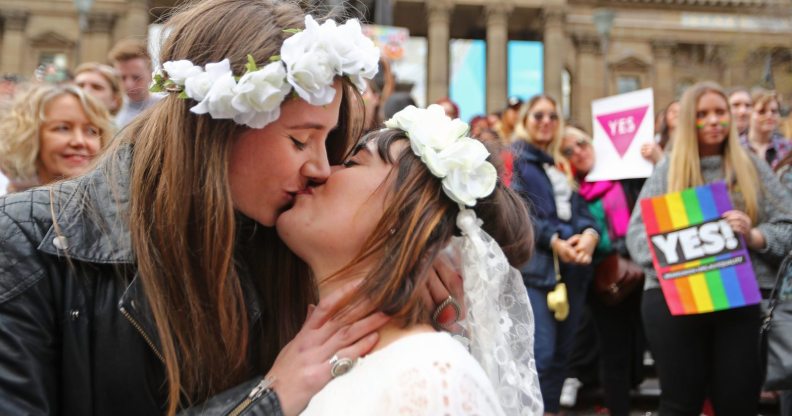
A mass-same-sex wedding in Australia (Scott Barbour/Getty Images)
Australia has voted Yes in a historic nationwide survey on same-sex marriage.
Almost 13 million Australians (79.5%) voted in the country’s non-binding postal ballot – a bigger turnout than in even the UK’s EU referendum.
The historic vote follows in the footsteps of Ireland by endorsing same-sex marriage in a national vote.
Australia now looks likely to become the 25th country in the world to introduce marriage for same-sex couples.
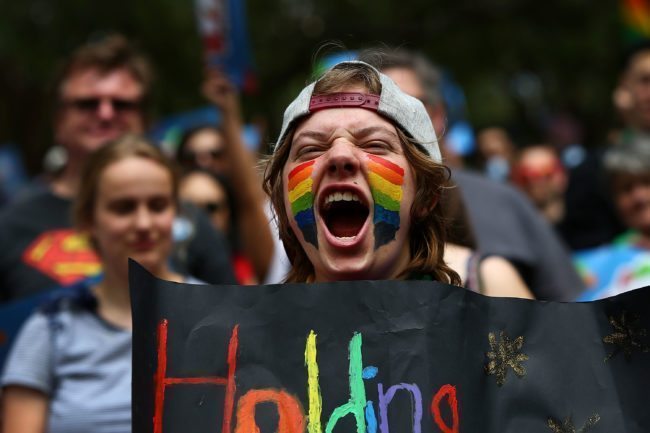
The results were announced at 9am Australian Eastern Daylight Time, or around 11pm GMT by statistician David W Kalisch.
12,727,920 people responded to the survey with a response rate of 79 percent, which Mr Kalisch said was an “oustanding” turnout.
Yes responses represented 61.6 percent of responses with 38.4 percent voting No.
Higher turnout with older participants and lower with younger participants, but “not markedly so”.
It is understood that Mr Kalisch informed a number of representatives ahead of the announcement, including Government ministers and leaders from the Yes and No campaigns.
Celebrations took place from early Wednesday morning as Yes campaign headquarters across Australia opened their doors ahead of the result.
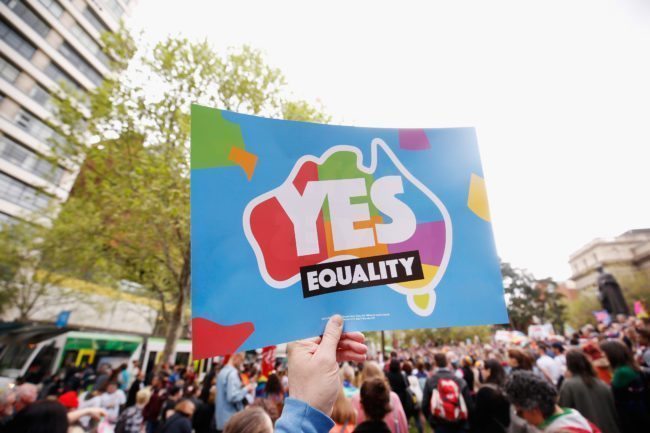
Former Conservative British Prime Minister David Cameron, who introduced same-sex marriage while PM, also welcomed the news.
I’m incredibly proud of legalising Same Sex Marriage in the UK & delighted that other countries are looking to do the same. G’day Australia! https://t.co/Beg9poCc1T
— David Cameron (@David_Cameron) November 15, 2017
Labour leader Jeremy Corbyn also tweeted to celebrate the vote.
I am delighted that Australians have voted for #MarriageEquality, a great victory for equality and human rights. I hope the Australian Parliament will make it law.— Jeremy Corbyn (@jeremycorbyn) November 15, 2017
The No campaign conceded defeat, having previously said it would settle for a result over 40 percent, with Tony Abbott, former Prime Minister, claiming that would be a “moral” victory.
Prime Minister Malcolm Turnbull, who is a personal supporter of the equality law, pledged that his government would support the move in the case of a Yes vote.
Turnbull has previously said same-sex couples could be married by the end of the this year if voters back Yes.
However the decision ultimately has to be approved by parliament.
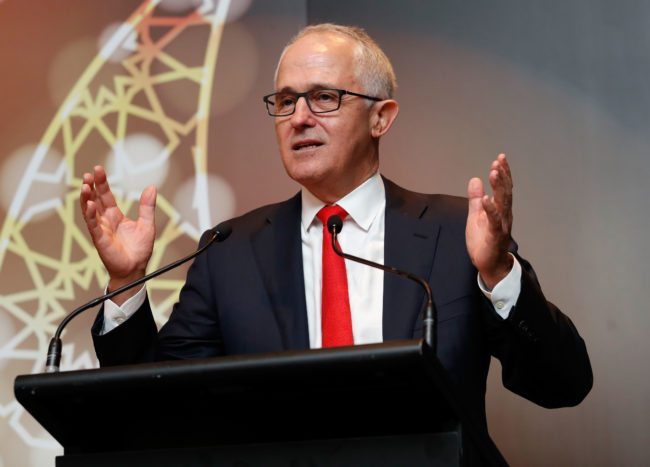
The public vote is not legally binding, so both houses still need to pass legislation for it to become legal.
Monday is the first day that a same-sex marriage bill can be tabled in the House of Representatives, which is not sitting this week.
A bill must pass in both houses before it can be signed into law by the Governor-General.
Hardline anti-LGBT MPs within the governing Liberal-National Coalition say they will not be conceding – even if the public gives a strong backing for equality.
Two bills will be proposed to parliament – one by a coalition of same-sex marriage supporters proposing simply to introduce the other measure, and another by a right-wing Senator proposing same-sex marriage, but with various “religious freedoms”.
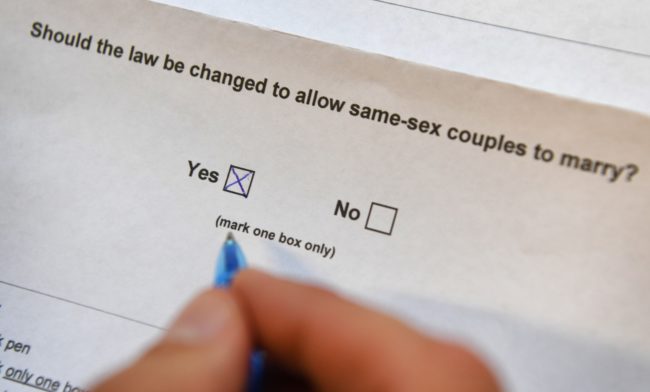
Liberal James Paterson is to introduce the caveated bill that would override any anti-discrimination laws passed by state and territory level legislatures.
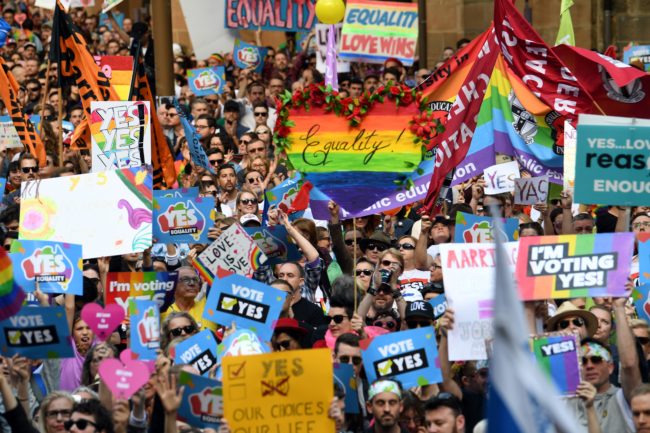
Protests in Australia (SAEED KHAN/AFP/Getty Images)
It will permit anyone who holds a religious or “conscientious belief” in traditional marriage to refuse same-sex weddings, allowing discrimination by private service providers.
The proposal comes after a bombshell poll found half of Australians support service providers being allowed to refuse same-sex weddings on the basis of private religious views.
Hardliners may also table a string of amendments if their desired bill doesn’t go through, in a bid to seriously change or slow the introduction.
However it seems unlikely same-sex marriage will not be introduced in some form, with the opposition Labor Party supporting the measure, and a majority of parliamentarians in favour.
When will the first same-sex marriages take place?
Same-sex marriage should become legal now the public vote has endorsed the move.
The vote will be followed by legislation, though there could be a bit of a wait for those who wish to marry.
The standard waiting time for legislation to take effect is 30 days.
However, this could be longer if the Government decides that celebrants and other officials need more time to get acquainted with the new law.

